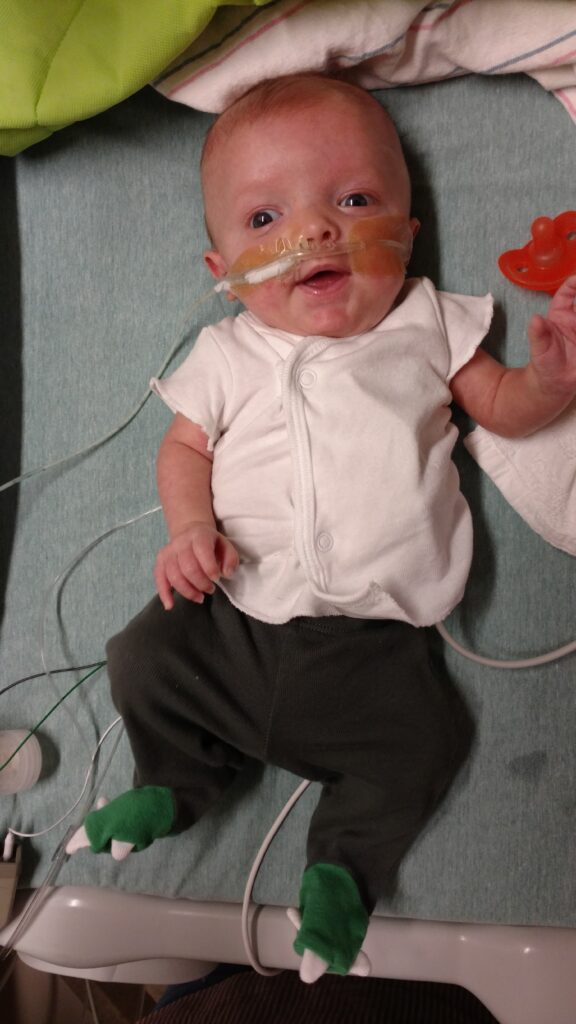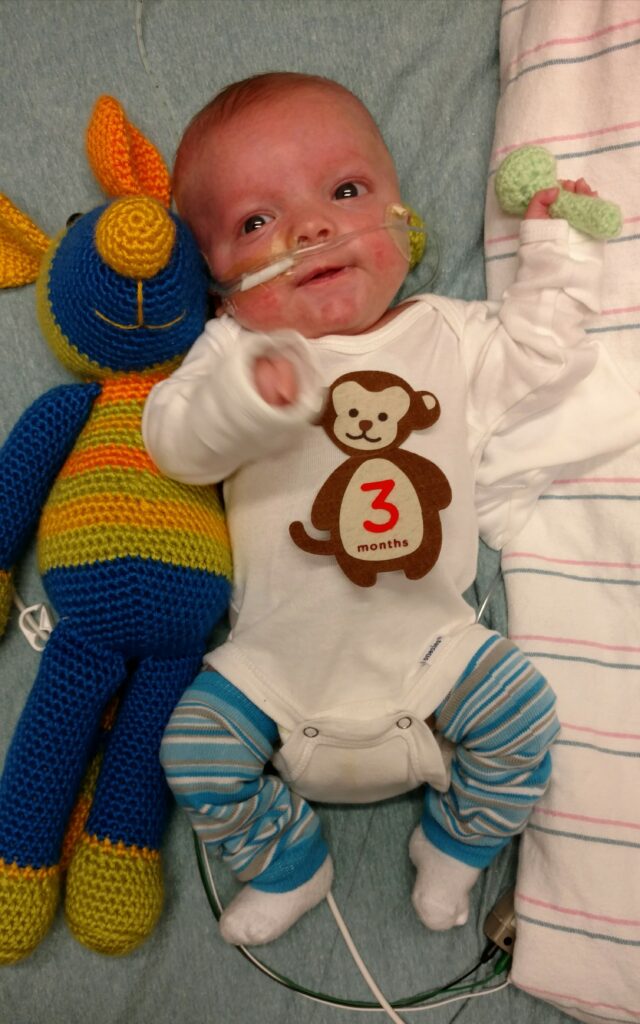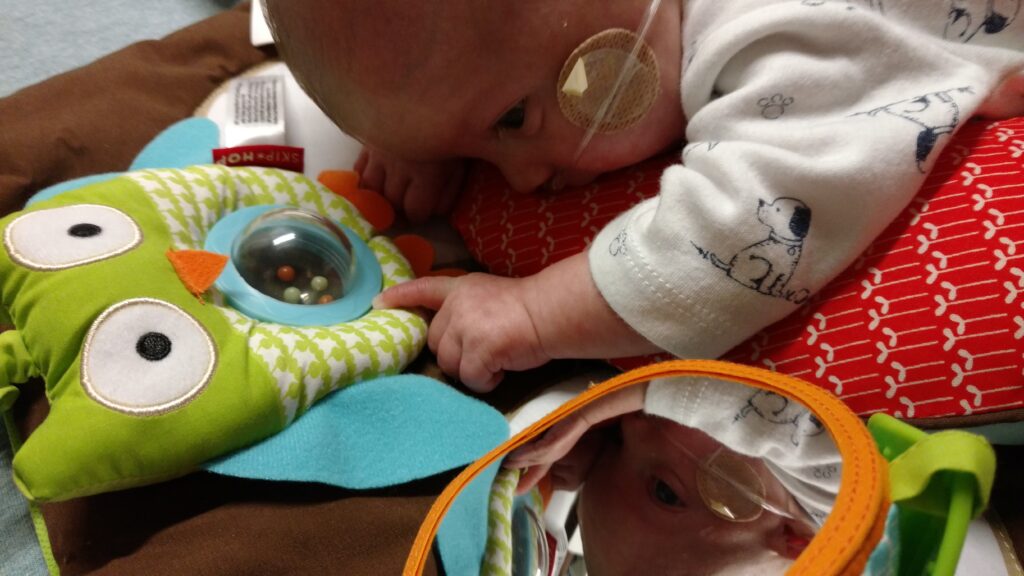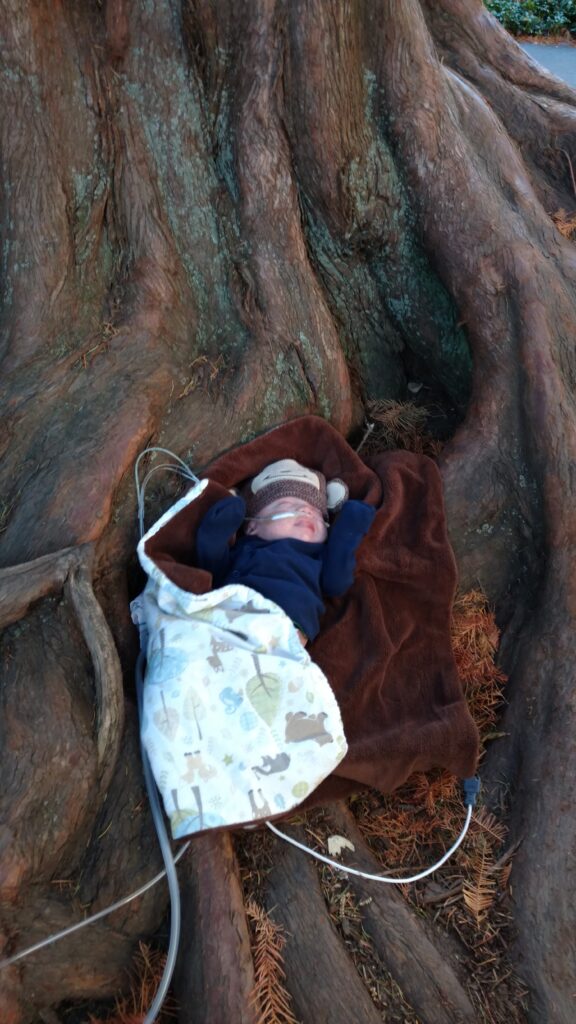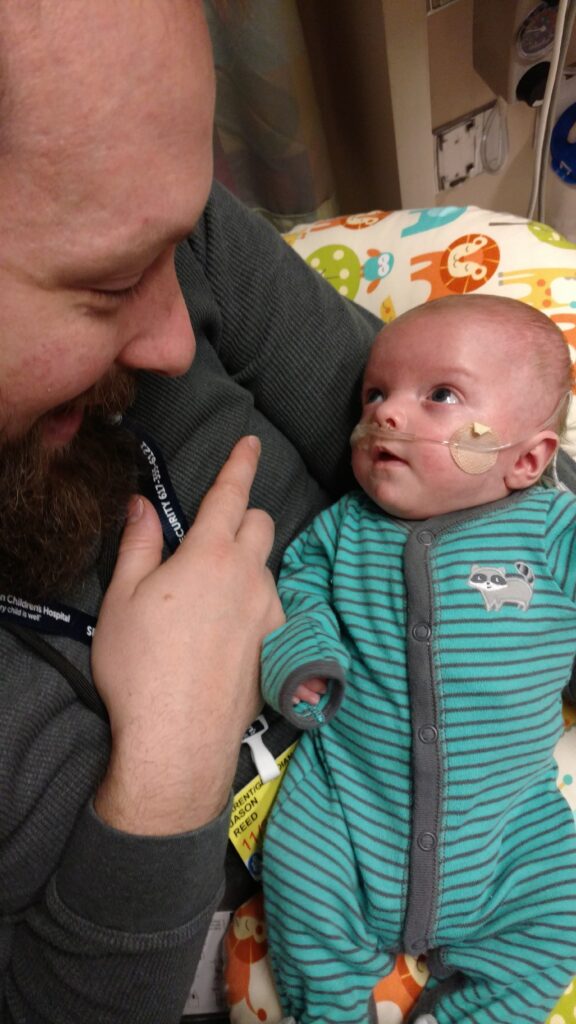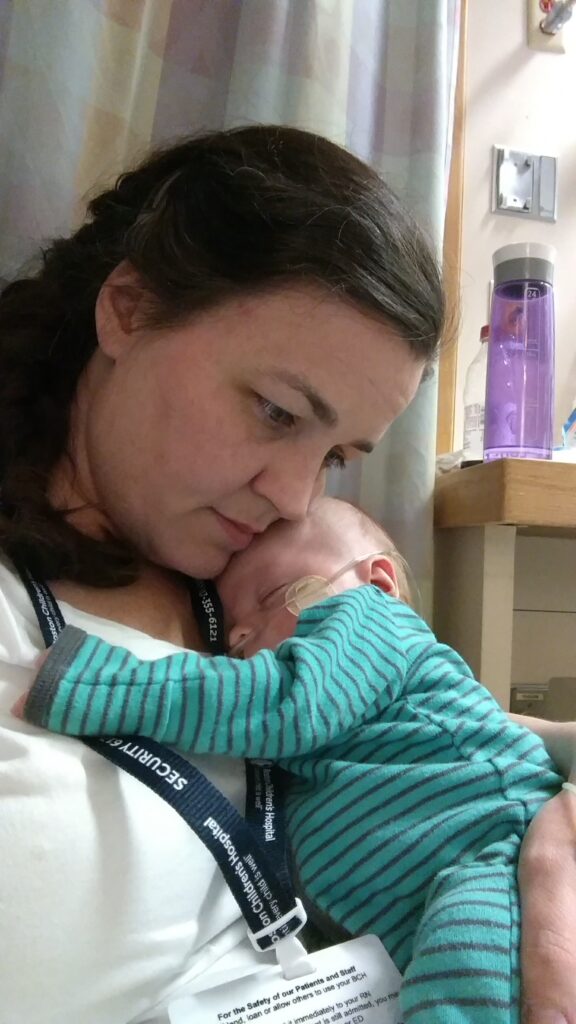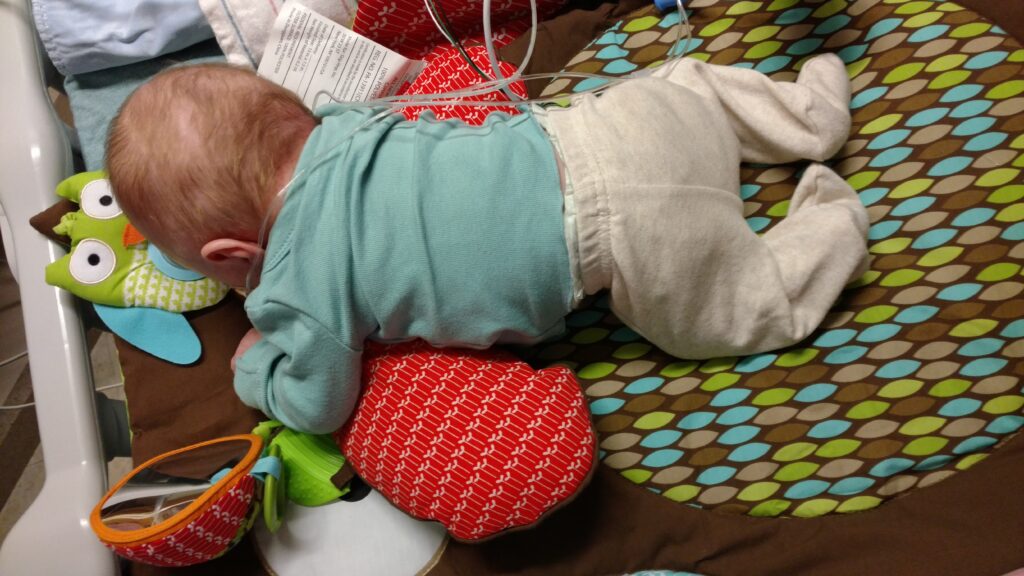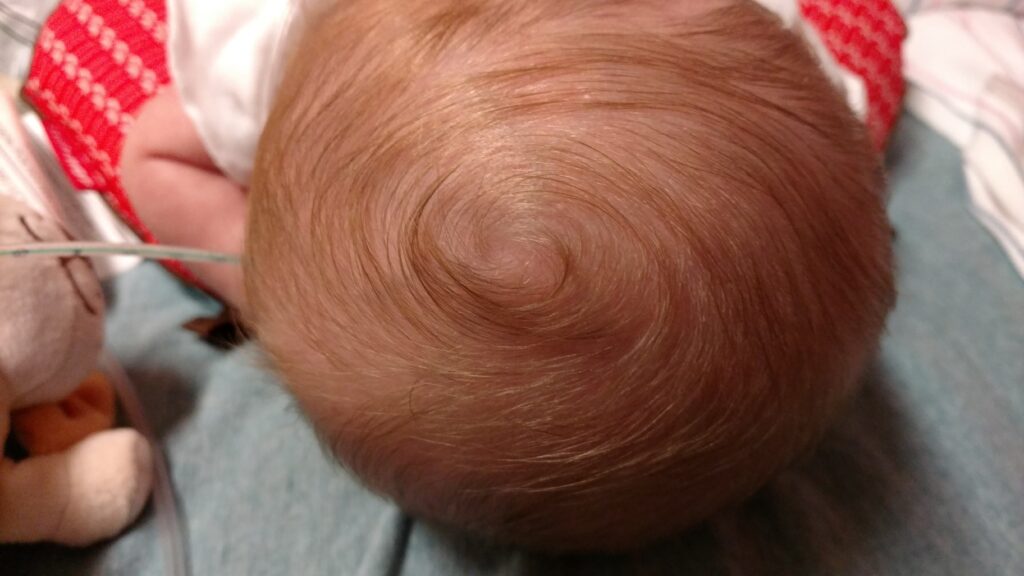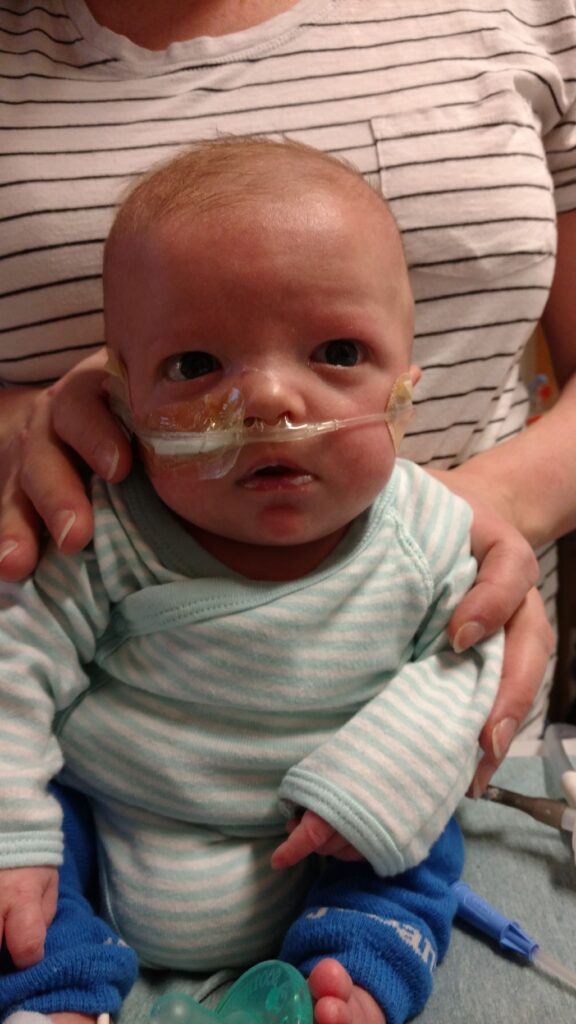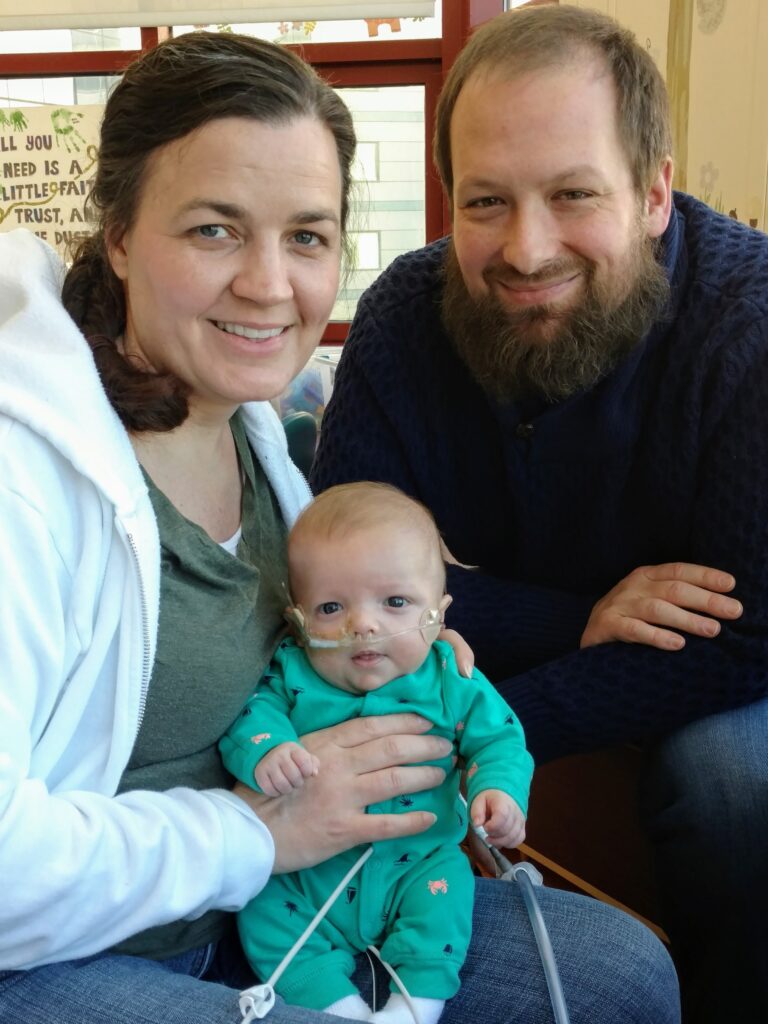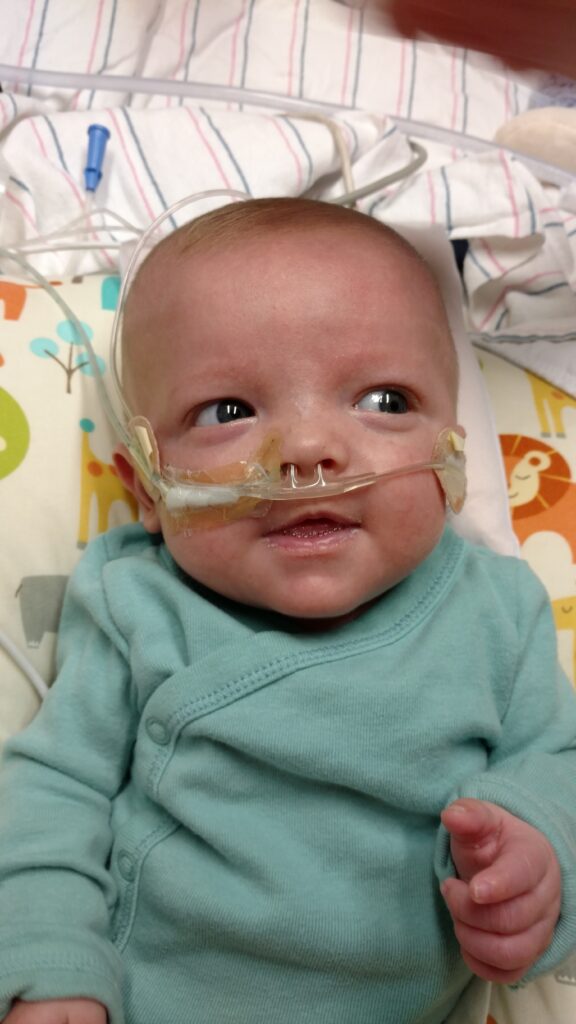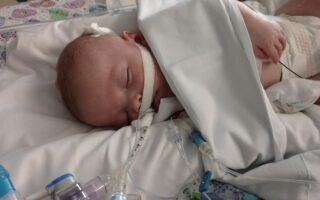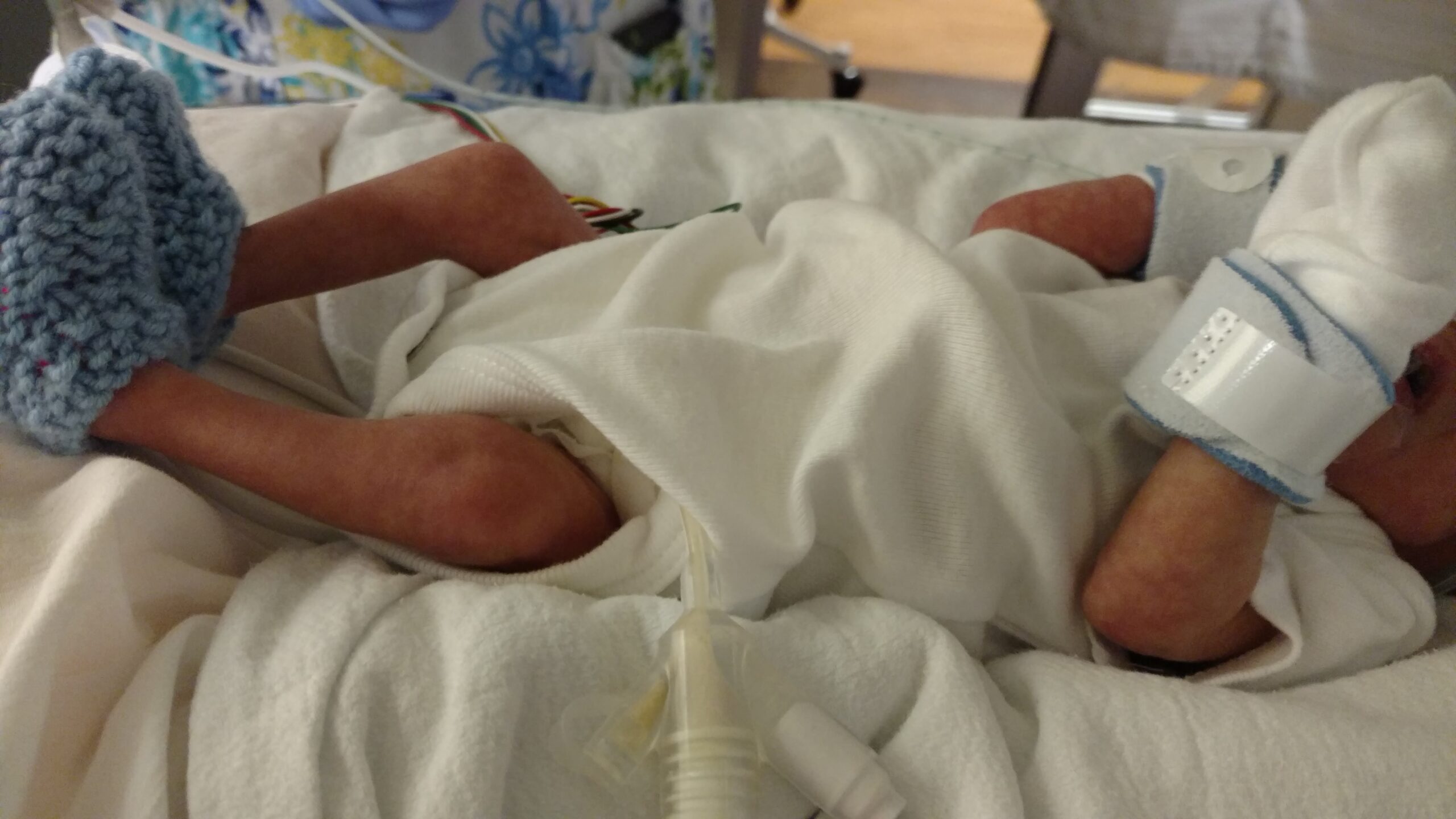Our first month we were in Boston was by far the calmest and most relaxing we had experienced since Teddy’s birth. While it was very busy, we quickly fell into a routine and could just focus on Teddy growing. We were very nervous because we knew the big surgery would be upon us soon, we also knew that we had some time to relax because Teddy was too small to have the surgery yet. So, the doctors focused on running all the tests they needed to truly confirm all of Teddy’s diagnoses, take care of a few smaller issues, focus on finding the right calories and feeding schedule so he would continue to grow, and start coming up with a game plan for his EA reconnection surgery. Jason and I focused on Teddy and enjoyed every minute we had with him. And let me tell you, Teddy was breaking hearts left and right. I mean I know I am biased, but he was so ridiculously cute that people just couldn’t help but fall in love with him. Every nurse, tech, doctor, aide, heck even cafeteria workers and people we would pass while walking around, would comment on just how cute he was. And still to this day, at seven years old, we get the same comments anywhere we go.
When we first arrived, Teddy was a week shy of 3 months old and had just hit 7 pounds. In order to do the surgery, they told us he would need to be at least 8 pounds, but they would prefer 9 or 10 pounds. At that point Teddy was growing pretty slowly, so honestly, I thought we would be there a few months before he would even be big enough to have the surgery. So, the first thing they did was adjust his formula we were feeding him. At home, they had us using mostly formula with some breast milk added, for some additional calories. When we got to Boston, that switched, and we were using mostly breastmilk with a scoop of high calorie formula as a calorie booster. They also decided that he should stay on oxygen support, even though he could be on room air. This was because he was tachypneic (rapid, shallow breathing) at his baseline and this was causing him to burn calories a lot faster than he should be. Those two changes made a massive difference and in just over two weeks he had already gained over a pound! He was ever getting “chubby”, well chubby for Teddy, and was even cuter, if that is possible.
They also ran every possible test, and we were able to get a lot more clarity on all of his diagnosis and learned a few new things in the process. He had an esophagram to determine his EA gap size and it turns out it was closer to 4 cm, instead of 6 cm as originally thought. This was great news because it meant the regrowth time needed between surgeries would hopefully be shorter. We learned more about his spine and caudal regression syndrome and what that might mean for his future independence. This still hard information to hear, but we were better prepared, and they were also able to give us more information on possibilities for future options and procedures to assist, if needed. We came up with a plan to correct his club foot after his surgeries. We also learned more about his solitary kidney and heart defects. Thankfully both were stable.
The biggest thing we learned though, which explained why Teddy struggled so much with breathing when we took him home, was that instead of Teddy just having a smaller lung, he was actually missing his entire right upper lobe of his lung. When they did the nuclear testing on the capacity of that lung, it was only operating at about 15% of what it should have been, which meant his left lung was working overtime to keep the air moving. We also learned that he had tracheomalacia, which is basically a floppy airway, although we would not learn the extent of just how bad it was until his first surgery. Everyone was amazed that he was able to maintain his oxygen levels (94% or above) on room air (without oxygen support). While this news was hard to hear, because it meant his surgery would be even bigger and his little lung would never catch up like we secretly hoped, it was also a relief that we had not been the cause of Teddy’s unsuccessful trips home. I had worried so much that we had caused his breathing difficulties somehow, but basically being out of the sterile hospital environment, into outside air full of allergens, caused his breathing difficulties to worsen, which led us back to the hospital both times. At the time I was so sad we were not able to make it at home, but looking back now it was really a blessing, because it meant we were able to get him to Boston and get surgery much sooner than had we stayed home.
Between all the testing and doctor rounds we honestly just took in the wonder that was Teddy. He was growing so fast and hitting so many milestones. He was cooing and reaching, and his head control was getting so much stronger. He was so curious and constantly taking in the world around him. He hated tummy time but was starting to try to push himself up. His purposeful interaction with us and others was also blossoming, and he loved exploring and seeing new places. In Boston we were actually able to walk him around the hospital. They had a beautiful garden with a big tree and a fantastic playroom. We were able to take him to the Starbucks and cafeteria in the hospital as well. It truly was a wonderful time, where we could just focus on being a family. We even spent our first Thanksgiving together, which mainly consisted of Jason and I taking turns heading down to the cafeteria to grab the Thanksgiving meal they were having for patients and their families and then went as a family to the garden and playroom. It was fantastic.
Jason and I took turns spending the night at the hospital and had managed to get a room in family housing, which was within walking distance. So, we would stay with Teddy until he fell asleep, then one of us would head back to family housing, while the other stayed with Teddy. That way one of us was always Teddy and able to attend doctor rounds. I honestly can’t remember Teddy’s room situation while we were there. I do remember that we had shared rooms, but I do not think we always had a roommate. I feel like for a large portion of the time we were lucky and didn’t have roommates, because back then Boston’s floor were all shared rooms unless the child had to be quarantined. I can say that the “beds” available for parents were just a big chair that pulled out flat and horribly uncomfortable. We did get an egg crate at some point, which helped, but while I hated leaving Teddy at night, I was so grateful for my nights to sleep on the slightly more comfortable beds at family housing.
Teddy even said his first and only word during this time! I just happened to be recording a video for Jason, while he was away from the hospital and was asking Teddy if he could say “Hi, papa” and all of sudden he actually makes the sounds of “Hi!”. I was so surprised and amazed. It was the only time he did it and has never said a single word or even really letter sound since, but I actually caught it on camera, and it is one of my favorite videos to watch!
Additionally, as we got closer to surgery, the doctors in Boston allowed me to sham feed Teddy. Since Teddy’s esophagus was not connected, he was only allowed fluid straight into his g-tube, so I was never able to even try to breastfeed him. I assumed that was something I would never be able to do, because the older he became before his repair, the more likely the suck instinct would disappear (around 4-5 months), meaning breastfeeding and eating by mouth in general would become more difficult to master. I asked multiple times about this to see if there was anything else we could, beside the paci which he LOVED, to try and keep those instincts intact. Since he had never shown an aspiration risk, they decided I could sham feed. What this meant was I would pump until I was completely empty, to ensure he would not actually be able to get any milk, and then practice breastfeeding Teddy to see if he would latch. Not surprisingly, my already 3-month-old wasn’t quite getting it, but he did actually latch once or twice, which took me completely by surprise! I hoped we could continue working on it, while we waited for surgery, so that after his repair he would be ready to jump right in. Unfortunately, that turned out not to be the case, but having those sessions and feeling his latch is something I am forever grateful for.
Teddy was growing so fast, that after about two weeks being there, they started talking about scheduling surgery. Although he was still considered a long gap, being closer to 4 cm meant they might be able to do a traditional repair, which means one surgery that stretches the two ends of the esophagus together and connects them. They felt he was right on the border of being able to do a traditional repair, so they prepared us for him most likely ending up needing the Foker procedure, which is actually why we were in Boston. I will do a separate post that describes the Foker procedure in detail, but essentially it would require two long surgeries and he would be sedated and paralyzed in the days/weeks between those surgeries. We knew what we were getting into. We had talked to other parents about the Foker procedure, but the closer we got and the more details we learned, the more nervous and worried we became. We knew Boston was where we needed to be, and boy did that turn out to be right.
They set his surgery date for November 29th, just three and a half weeks after we arrived in Boston and much faster than we expected. In the final week leading up to the surgery we truly just soaked in as much of Teddy as we could, because we knew the next few weeks were going to be tough, but we were so excited that Teddy would finally be over this massive hurdle and start to live an amazing life without all the tubes. We knew nothing was guaranteed but were hoping everything would go smoothly. We went to sleep the night before surgery, extremely nervous, but excited. Little did we know, the next two months would be some of the hardest days we would ever face.
